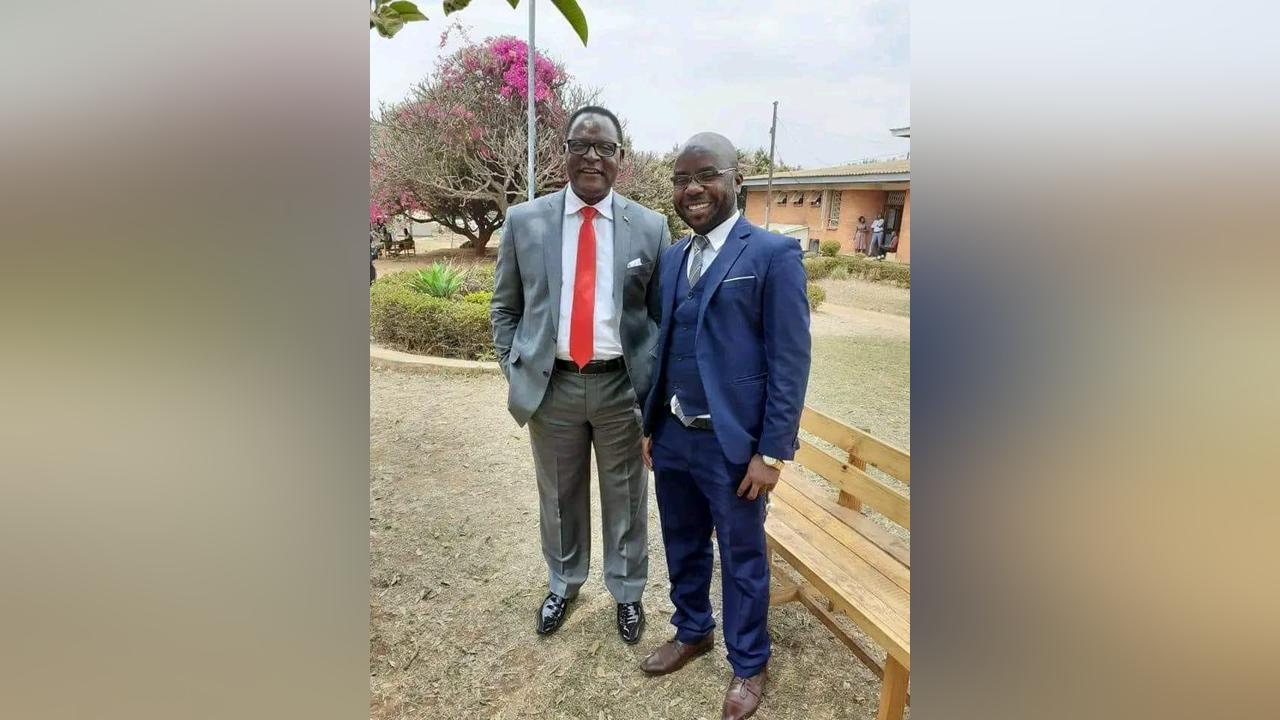Africa-Press – Malawi. Independent Member of Parliament Ayuba Sylvester James has positioned himself as one of the clearest and boldest voices confronting the direction Malawi Congress Party has taken under former President Lazarus Chakwera. His message is not wrapped in diplomacy or caution. It is sharp, deliberate, and rooted in a political reality that many within the party whisper about but fear to say aloud: MCP will not rise again unless Chakwera steps aside—fully and immediately.
Ayuba argues that the issue is not simply that Chakwera lost the presidency. Leaders lose elections; parties regroup, reorganize, and recover. The real problem, he insists, is that Chakwera wants to remain at the center of the party even after that defeat, influencing the process of choosing the next leadership.
To Ayuba, this is where the danger lies. The longer Chakwera stays, the more he imposes his style, his preferences, and his limitations on the party’s future direction. “The reason I don’t want this man to stay longer after his humbling loss at the poll,” Ayuba cautions, “is because I don’t want him to influence any process of electing new leaders. If he does, we will end up with another leader fashioned in his image—uninspired, insecure, and growth-resistant.”
In Ayuba’s assessment, Chakwera’s leadership did not cultivate excellence. It surrounded itself with the comfortable, the compliant, and the unchallenging. The people elevated under his watch rarely exhibited the intellectual sharpness, strategic daring, or emotional grounding necessary for national transformation.
Instead, appointments were often safe, dull, unimaginative, and socially distant from the real problems and aspirations of Malawians. This was not coincidence—it was culture. A leadership style that avoids strong minds produces a system where mediocrity masquerades as loyalty.
Ayuba’s critique goes deeper than the surface wounds of electoral failure. He argues that during his time in power, Chakwera became more preoccupied with the symbolism of leadership than with the substance of it. The office, the posture, the title, the ceremonial presence—these seemed to matter more than the impact of decisions or the moral weight of governance. The tragedy is not just that he failed to transform Malawi while in power, but that he now clings to influence after losing it, attempting to remain the gravitational center of a party that desperately needs renewal.
For Ayuba, MCP cannot become new while it is still shaped by the habits of the old. Renewal demands parting ways. Revival requires a decisive break. The party cannot rebuild while the imagination of its future is still tied to the leadership that delivered stagnation. If Chakwera remains, he will shape the succession. If he shapes the succession, the party will inherit his weaknesses. Therefore, Ayuba insists that the first step is separation. The party needs space to think, to reorganize, to rediscover itself, and to allow new voices, new thinking, new competencies, and new courage to rise without being filtered through the shadow of the old leadership.
So when Ayuba says, “Chakwera must fall for MCP to rise,” he is not speaking in anger or disrespect. He is speaking as someone who understands that political parties decay from inside when they refuse to learn from loss. Malawi’s political history is full of parties that never recovered because they clung to expired leadership. Ayuba is determined that MCP should not be added to that list. He is calling not for chaos, but for clarity. Not for disrespect, but for renewal. Not for division, but for the courage to rebuild.
His message is precise: If MCP wants to rise again, it must rise without Lazarus Chakwera. And that rise must begin now.
For More News And Analysis About Malawi Follow Africa-Press






